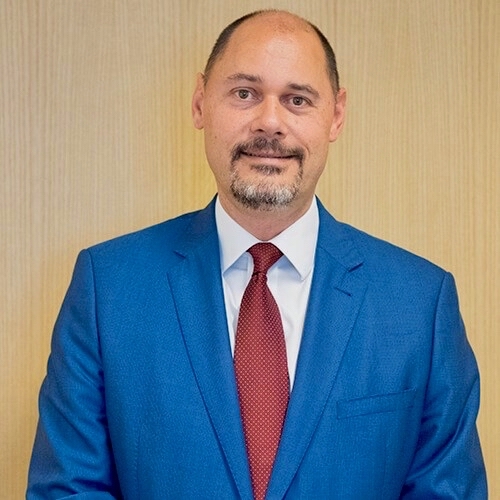Tackling turbulence with the Airline Catering Assocation
This is a special feature from PAX International's December 2020 FTE APEX Virtual Expo digital edition.

The search for solutions to help build passenger confidence seems to frequently include a conversation about food safety. Yet, the World Health Organization (WHO) recognized that food cannot transmit the virus soon after the pandemic began. “There is currently no evidence that people can catch COVID-19 from food,” reads the August 2020 Food safety and nutrition news release from the WHO.
In a mid-November interview with PAX International, the Airline Catering Association’s (ACA) Managing Director Fabio Gamba said the WHO finding is what the Association wants to be sure the industry, and future travelers, understand.
“It is easy to understand why. But I want to get this straight up front: The COVID-19 virus doesn’t impact food safety,” he says. “Food isn’t a vector of the virus.”

Fabio Gamba, Managing Director, Airline Catering Association
The Brussels-based Association published the COVID-19 ACA Guidelines Edition 1 in June 2020 to offer the industry what Members considered best practices for onboard caterers to navigate safely throughout the pandemic.
“In order to do that, we considered a variable-geometry guidance that any interested company could lean on, depending on the national legislation it is subject to, and given varying risk assessments it is called to undertake in function of the epidemiological situation of the stations and countries it operates at,” Gamba explains.
Now, ACA is working with the International Flight Services Association (IFSA) on a second edition of the document. Expected to published in the near future, Gamba says it will provide more information on how to implement the ‘4Ps’ – People, Premises, Policies, Processes & Procedures, and Procurement – and will integrate what has been learned from the auditing processes. The revised document should act as a “turnkey solution” for any type of inflight catering activities, Gamba says. It will be available free of charge on both Association’s websites by January 2021.
As the Association continues championing for the industry restart, Gamba says it is working on guidelines for what it considers a growing practice: back-catering. While airlines have used the strategy of loading enough food onboard for several flights since the inception of inflight catering, the Association predicts a significant increase in back-catering practice. This could present a challenge to caterers when paired with substantial differences in international legislation and the absence of accepted Standing Operating Procedures (SOPs).
“This is not strictly related to a restart of the industry, but it is – or rather, it can be – an issue that most catering companies have been faced with, and coming up with another guidance document will most certainly help allay the concerns of airlines and caterers when faced with issues, for instance, of overnight cooling or other similar topics,” Gamba says.
Its industry advocacy also includes the recent publication of an open letter to Ursula Von der Leyen, President, of the European Commission, in September stating its support of the EU coordination framework for travel restrictions. The letter was signed by the ACA, Airport Council International, the European Travel Commission and the International Air Transport Association (IATA), among others.
“We thought that the EU coordination framework was long overdue, and we wanted to encourage those still reluctant Member States to adopt and implement it,” Gamba said in an interview with PAX last month.
It is also finalizing a new standard agreement with the International Air Transport Association (IATA) that can serve as a pre-existing and pre-approved template for airlines and inflight caterers. The template includes the commonly acceptable standards related to Nominated Products, sub-contracting, auditing, liability, termination and more.
“I cannot stress enough how important that could be for the entire industry, which every year spends a baffling amount of resources reinventing the wheel each time a new contract is discussed,” Gamba tells PAX, adding that the standards template should be available by about May of next year.
Come February, the ACA plans to host a virtual onboard catering workshop that will address essential elements of inflight catering, for which registration is now open. The event is the second edition after a successful in-person February 2020 ‘Inflight Catering “Farm to Fork” Workshop’ that was held in Brussels before the pandemic.
Gamba says the Association is doing its best to stay the course despite turbulences. It has streamlined communication to its members via daily COVID-19 briefings and relevant social media updates, at the request of its membership.
“An interesting aspect, which I believe is a good testimony of the incredible resilience of this industry and of its faith in a not-so-distant return to normal, is the insistence of our members to have their association keep up with its work on longer-term projects,” he says. “They feel it is important that, at a time when they re-prioritize and adapt to a contracting market, someone out there continues to pave the way for the future of this industry.”

